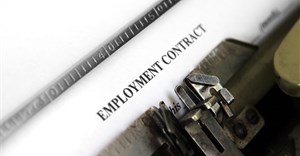
Subscribe & Follow
Labour Court quotes DLA Piper report

Tlhotlhalemaje, an Acting Judge of the Labour Court of South Africa, said in his judgement, "In his article (in Business Day newspaper), Evan Pickworth proclaimed that 'South Africa's whistle-blowing framework has received the highest possible rating of three stars in a report by global law firm DLA Piper for providing express protection to those making legitimate disclosures. It means South Africa trumps Germany, France, Hong Kong and Australia and is on a par with the laws in the US, UK and China.'
'Feel-good' news
"In the light of such 'feel-good' news, as South Africans, we should ordinarily be in self-congratulatory mood and patting ourselves at the back for having trumped such illustrious nations known generally for clean governance, and also being on par with such good company in the field of whistle-blowing," Tlhotlhalemaje said.
In January this year, DLA Piper issued a research report stating that whistle-blowing was attracting high-profile media attention across the world and is proving to be a key concern for multi-national employers, especially in relation to the cultural attitudes, regulations and differing levels of protections across the globe. The report, Whistle-blowing: An employer's guide to global compliance, revealed that employers must be aware of the issues of wrongdoing in the workplace and outlines the challenges for global employers seeking to minimise the risks to their business.
Protection in SA
"Our report showcases the different levels of protection for whistle-blowers around the globe, and highlights the extensive protection in South Africa, compared to some other jurisdictions around the world," Tim Marshall, global co-chair of the Employment Group stated. "The high profile media attention that whistle-blowing is attracting demonstrates the growing recognition that this is an issue that all employers - wherever they are located, and whether domestic or multinational - need to address, and the importance of implementing policies and procedures that work at all levels."
In the South African chapter of the report, Patel outlined the fact that the whistle-blowing framework in South Africa has developed over time and included constitutional provisions, the Protected Disclosures Act 2000 (PDA), the Labour Relations Act (LRA), the Companies Act 2008 (CA) and a body of case law. South Africa has specific legislative protection for whistle-blowers in the workplace, similar to the legislation in place in the UK.
"Employees who disclose information in a prescribed manner regarding criminal, unlawful or irregular conduct in the workplace are protected from any form of occupational detriment (such as victimisation/retaliation) under the PDA," he said.
Limited protection
Patel noted that protection under the PDA and LRA is limited to paid employees only, excluding independent contractors and volunteers. The CA however extends whistle-blowing protection to suppliers of goods or services to the company, which may then include all types of personal services, irrespective of the classification as employee or independent contractor.
"The fact that this report is now quoted in a judgement in our South African courts is testimony to the impact this research had on our legal system and the respect in which the information was held. It is of the utmost importance that our laws are utilised effectively so that we are able to legally protect our whistle-blowers. Employers needs to be aware of these laws so that they can apply them in these situations," Patel concluded.













